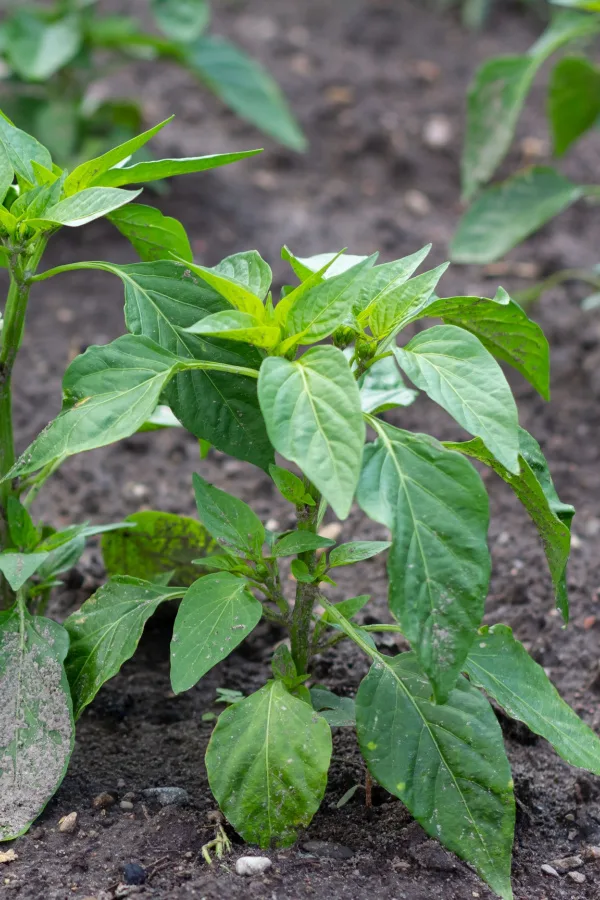Discover the Best Fertilizers for Peppers and Enhance Your Yard's Yield
Discover the Best Fertilizers for Peppers and Enhance Your Yard's Yield
Blog Article
Organic Vs. Synthetic Fertilizers: Which Is Best for Nurturing Healthy Pepper Plants?
In the realm of nurturing healthy and balanced pepper plants, the choice in between natural and artificial plant foods stands as an essential decision with far-reaching implications. While both alternatives goal to provide important nutrients to support plant growth, the nuances of their influence on the dirt, plant health and wellness, and the atmosphere trigger a dispute that mirrors throughout the gardening area. Comprehending the distinct benefits and prospective challenges of each plant food kind is critical for pepper cultivators seeking to enhance their returns while preserving an eco-conscious and sustainable strategy.
Advantages of Organic Fertilizers
Organic fertilizers provide an environmentally-friendly and lasting approach to nourishing pepper plants, giving necessary nutrients without making use of synthetic chemicals. These natural fertilizers are derived from organic sources such as compost, manure, bone dish, and algae, promoting dirt wellness and biodiversity. Unlike synthetic fertilizers, organic alternatives release nutrients slowly, guaranteeing a consistent and balanced supply for pepper plants to grow.
One considerable benefit of natural fertilizers is their capability to improve dirt framework and water retention. By improving soil wellness, organic plant foods advertise advantageous microbial task, which helps in nutrient uptake by pepper plants. Additionally, natural fertilizers decrease the threat of chemical run-off, securing water resources from pollution and safeguarding the atmosphere.
In addition, natural plant foods add to lasting soil fertility by promoting the growth of advantageous soil microorganisms. These microorganisms aid damage down natural issue, releasing nutrients in a kind that is quickly accessible to pepper plants. best fertilizers for peppers. By promoting a healthy and balanced soil ecosystem, natural plant foods sustain sustainable pepper growing methods that profit both plants and the atmosphere
Drawbacks of Synthetic Fertilizers
Artificial plant foods, unlike their natural counterparts, pose various negative aspects when utilized to nurture pepper plants, influencing both plant health and ecological sustainability. One significant drawback of synthetic plant foods is their propensity to seep nutrients from the soil promptly. This fast leaching can result in vitamins and mineral inequalities in the soil, creating plants to deal with shortages or poisonings. Additionally, synthetic plant foods can hurt valuable soil organisms, such as earthworms and helpful germs, disrupting the dirt ecological community's balance.
Furthermore, the overuse of synthetic plant foods can contribute to water air pollution. Excess fertilizers not absorbed by plants can remove right into water bodies, resulting in eutrophication, where algae flowers deplete oxygen levels in the water, hurting marine life. Synthetic plant foods are commonly derived from non-renewable sources, such as fossil fuels, adding to carbon exhausts and ecological degradation during their manufacturing.
Nutrient Absorption Contrast
When comparing synthetic and organic plant foods in terms of nutrient absorption, natural plant foods have the benefit of supplying a more well balanced and slow-release source of nutrients. Organic fertilizers include a selection of macro and micronutrients that are not just helpful for the plants yet also advertise healthy and balanced soil microbial task, which assists in nutrient uptake.
Moreover, organic plant foods boost soil structure and water retention capability, enabling pepper plants to access nutrients more effectively. This better soil top quality promotes root advancement, making it possible for much better nutrient absorption. Synthetic fertilizers, although at first improving plant growth because of their check it out high nutrient concentrations, might hinder long-lasting nutrient absorption by derogatory dirt health in time.
Environmental Effect Factors To Consider

On the other hand, artificial plant foods, although typically even more concentrated and immediately offered to plants, can have harmful impacts on the setting otherwise used effectively (best fertilizers for peppers). Their manufacturing needs high energy inputs, leading to greenhouse gas exhausts and adding to environment modification. The drainage of excess synthetic fertilizers can infect water resources, leading to eutrophication and damaging aquatic environments.
Ideal Plant Food Practices for Peppers
When fertilizing pepper plants, optimizing nutrient uptake and reducing environmental effect are key considerations. To attain this, it is important to comply with finest fertilizer methods customized to the certain needs of pepper plants. One important method is to carry out a dirt examination prior to using any fertilizers. This test can establish the pH degree of the soil and identify any nutrient shortages, guiding you in picking one of the most appropriate fertilizer formulation.
One more crucial technique is to feed pepper plants at the right time. Typically, peppers gain from receiving plant food at growing and after that once more when they begin to flower. Over-fertilizing can result in nutrient inequalities and damage the plants, so it is crucial to follow suggested application prices.
In addition, choosing a well balanced plant food with an NPK proportion that fits pepper plants' needs is fundamental. Organic plant foods, such as garden compost or manure, can be exceptional options as they launch nutrients gradually and boost soil structure in time. Artificial fertilizers can supply a quick nutrient boost when required. Inevitably, incorporating organic and artificial plant foods deliberately can aid support healthy pepper plants while lessening environmental influence.
Verdict

Organic fertilizers offer a sustainable and environmentally-friendly method to beneficial pepper plants, supplying important nutrients without the use of artificial chemicals. Unlike synthetic fertilizers, organic choices launch nutrients gradually, guaranteeing a balanced and constant supply for pepper plants to grow.
Artificial plant foods, in comparison to their natural counterparts, present numerous drawbacks when made use of to nourish pepper plants, impacting both plant health and ecological sustainability. When contrasting organic and artificial plant foods in terms of nutrient absorption, natural plant foods have the advantage of offering a much more balanced and slow-release source of nutrients.Moreover, organic fertilizers improve soil structure and water retention ability, permitting pepper plants to accessibility nutrients extra successfully.
Report this page